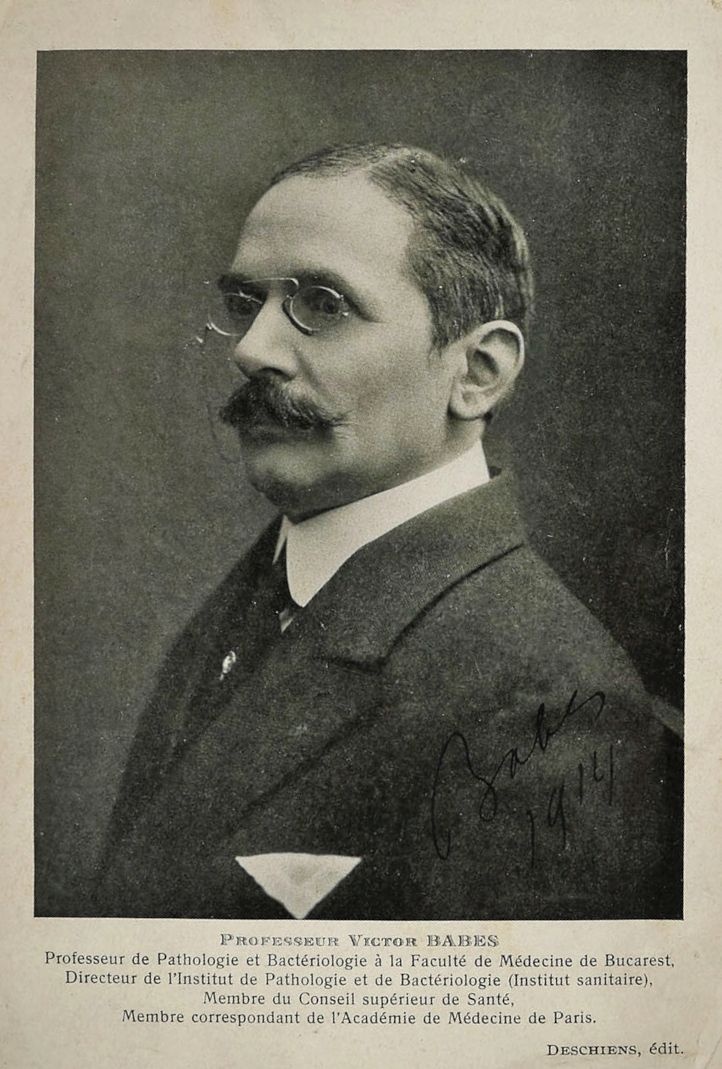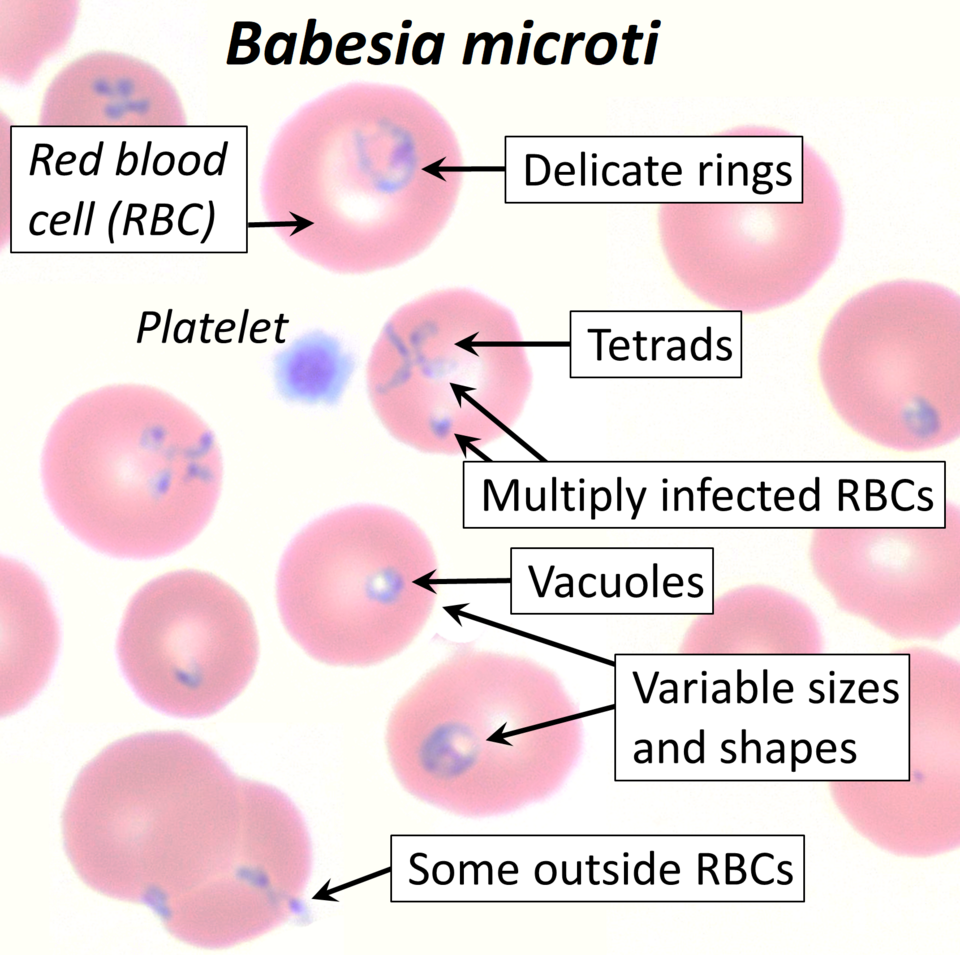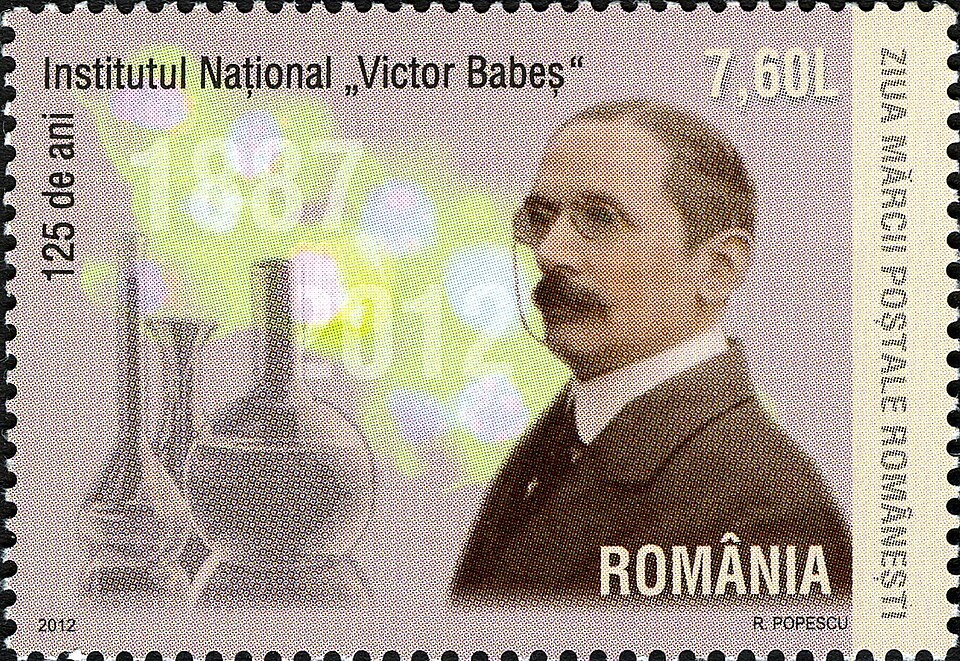
Victor Babeș was a Romanian bacteriologist best known for his work studying rabies, tuberculosis, and other infectious diseases around the turn of the 20th century. Considered one of the founders of modern microbiology, he authored one of the first treatises of bacteriology in the world and helped pave the way toward modern antibiotic medicine.
Actor Turned Biologist
Victor Babeș was born in Vienna, Austria, on July 28, 1854. Surprisingly, he didn’t always display an interest in the sciences. In fact, he was on track to become an actor; his childhood passions of poetry, music, and literature led him to study performance art in Budapest. However, his path took a drastic turn following the death of his younger sister, Alma. Alma contracted tuberculosis, which wouldn’t have a cure until the mid 1940s, and passed away. Wanting to help others avoid Alma’s fate, Babeș enrolled in the Faculty of Medicine in Budapest.

A photograph of Victor Babeș when he was a professor in Bucharest. Licensed in the public domain via Wikimedia Commons.
He worked his to way a doctorate degree in medicine in 1878 and began working as an assistant at the Pathological Anatomy lab in Budapest. Three years later, he received a scholarship to study in Paris and Berlin, where he worked alongside leading biologists and bacteriologists like Louis Pasteur and Victor André Cornil. He continued his research there until 1886. It was during this time that he and Cornil wrote the world’s first treatise of bacteriology: “Bacteria and Their Role in Pathological Anatomy and Histology of Infectious Diseases”.
Microbiology Work
One of Babeș’s first major discoveries was the eponymous Babesia, a microscopic parasite that infects red blood cells and is transmitted by ticks. Since his discovery of Babesia, more than 100 species have been identified. The parasite commonly infects livestock and rarely humans, where it can cause babesiosis (also called piroplasmosis), a malaria-like disease that causes fatigue, fevers, and hemolytic anemia.

An annotated image showing Babesia microti, a form of Babesia spread by deer ticks and known to cause babesiosis. This file is made available under the Creative Commons CC0 1.0 Universal Public Domain Dedication via Wikimedia Commons.
Babeș’s discoveries didn’t stop there. He was the first person to recognize tuberculous bacilli in the urine of infected patients. This discovery allowed for a noninvasive early detection method for tuberculosis, which in the future would help patients get treatment earlier. Additionally, he discovered how the rabies infection causes cellular inclusions of nerve cells. These microscopic growths (now known as Negri bodies after the Italian pathologist Adelchi Negri who further defined and studied them) are crucial for accurately diagnosing rabies infection.
The Father of Serotherapy
Babeș’s legacy isn’t only defined by his scientific discoveries, however. He is largely remembered for his dedication to helping others. He founded the Bucharest Anatomical Society to advance clinical studies in Romania and introduced the rabies vaccine to the country. In the early 1910s, he prepared cholera vaccines to combat the epidemic that broke out among troops involved in the Second Balkan War, and he worked alongside the Ministry of Health in Romania to implement prophylactic solutions to fight against epidemics that spread among towns and villages.
Hailed as the “Father of Serotherapy” (the precursor of modern immunology), he outlined the theories of passive immunity, which transfers already-made antibodies from an organism to a person who cannot produce their own antibodies via blood transfusion. This procedure allows the recipient to fight against a disease when their body is unable to do so naturally. Studying passive immunity eventually led Babeș to outlining the principles of antibiotics, which was later developed by Alexander Fleming.
Biologist Turned Knight
Babeș passed away in October 1926, leaving a strong mark on the worlds of medicine and microbiology. He was bestowed the title of Knight of the Legion of Honor, one of the highest accolades the French government can grant, and was elected a member of the French National Academy of Medicine due to his dedication to and innovative works in the field of microbiology. Today, multiple institutions bear his name, including the Victor Babeș National Institute of Pathology and Babeș-Bolyai University, the largest university in Romania, with a history dating back to 1581.
While Babeș’s scientific career may have begun due to tragedy, his work not only directly saved many lives but also paved the way for future scientists to continue to do so.

A stamp issued to commemorate the founding of the Victor Babeș National Institute, one of the oldest educational institutions in Romania focused on pathology and immunology. This file is in the public domain via Wikimedia Commons.
Further Reading
- More about Babeș’s life and work:
- How simulation is advancing medicine and microbiology today:



Comments (0)